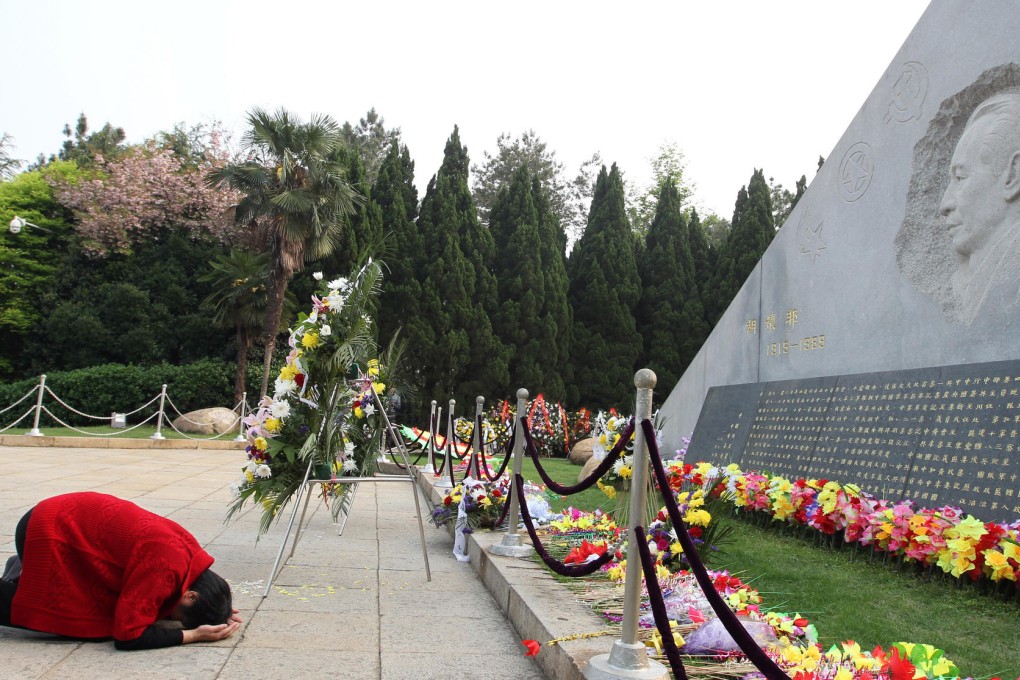Hu Yaobang's pilgrims remember reform efforts in lead-up to Tiananmen tragedy
25 years after the death of Hu Yaobang, those who remember his reform efforts in the lead-up to the Tiananmen tragedy travel far to honour him

Ma Jijun, an accountant from Shengzhou in Zhejiang province, bowed three times in front of the triangular tombstone before laying at its base a clutch of daisies.
He had travelled 650 kilometres to Gongqingcheng, in Jiangxi, for Ching Ming, the grave-sweeping festival, to honour Hu Yaobang, the late party general secretary whose life and death transformed China.
"He was the greatest man I knew and he influenced me my whole life," said Ma, tears welling.
Ma journeyed there as he head to Beijing on April 22, 1989. Then he had borrowed 400 yuan to be in the capital to join long lines of mourners who watched a hearse bearing the former Communist Party leader - the country's greatest hope for democracy - motor down the long, broad stretch of Changan Avenue.
"I couldn't help crying and respecting him when I heard his socks had several holes when he died and he had left no assets to his children," Ma recalled. "How many state leaders in history are as clean as that?"
Watch: 25 years on, China still remembers former party chairman Hu Yaobang